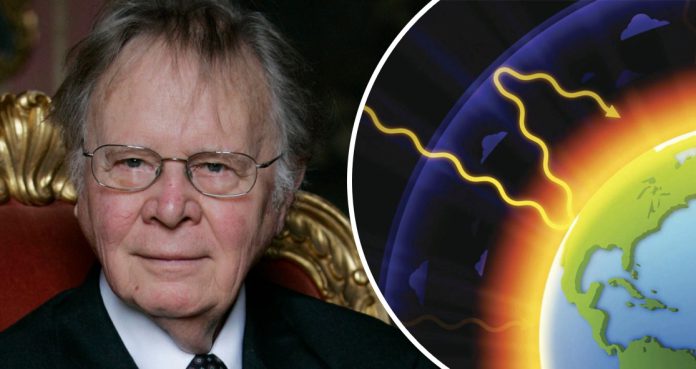A scientist who had blown the whistle about climate change and coined the term “global warming” has died at the age of 87 on Monday at New York City hospital.
The longtime Columbia University professor and researcher had been ailing in recent months, according to Kevin Krajick, a spokesman for the university’s Lamont-Doherty Earth Observatory.
William Broecker coined the term “global warming” in a 1975 article, which correctly predicted that an increase in atmospheric carbon dioxide levels would lead to global warming. He became the first person to recognize a global network of currents that affect everything from temperature to rain patterns; he called it the “Ocean Conveyor Belt.”
Michael Oppenheimer, professor of Princeton University, said, “Wally was unique, brilliant and combative. He wasn’t fooled by the cooling of the 1970s. He saw clearly the unprecedented warming now playing out and made his views clear, even when few were willing to listen.”
Broecker used to say that his studies suggested the Ocean Conveyor Belt is the “Achilles heel of the climate system,” a delicate phenomenon that can change promptly for reasons that are idiopathic. He explained it would take a very minimal rise in temperature to keep water from sinking in the North Atlantic, which would bring the conveyor to a halt.
The longtime Columbia University researcher said the warming caused by the accumulation of greenhouse gases could intensely affect the ocean currents.
He single-handedly coined the notion that global warming could result in dramatic climatic changes. He informed people about the abrupt climatic changes and unexpected things to happen due to global warming.
In 1997, Broecker told the Associated Press, “We live in a climate system that can jump abruptly from one state to another. By dumping into the atmosphere huge amounts of greenhouse gases, such as carbon dioxide from the burning of fossil fuels, “we are conducting an experiment that could have devastating effects.”
He added, “We’re playing with an angry beast — a climate system that has been shown to be very sensitive.”
In 1996, Broecker received the National Medal of Science and was a member of the National Academy of Science. He was also the research coordinator for Biosphere 2, which an experimental living environment that has turned in a research lab.
Broecker was born in Chicago in 1931. He grew up in suburban Oak Park.
In 1959, he joined Columbia’s faculty and spent most of his time at the university’s lab in Palisades, New York.
He was called the “Grandfather of Climate Science” and the “Dean of Climate Scientists.” Oppenheimer said, “His discoveries were fundamental to interpreting Earth’s climate history. No scientist was more stimulating to engage with: he was an instigator in a good way, willing to press unpopular ideas, like lofting particles to offset climate change. But it was always a two-way conversation, never dull, always educational. I’ll miss him.”






















